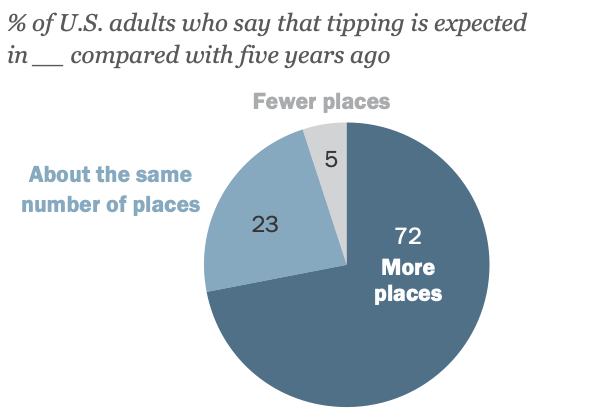Standardized testing, especially the ACT, should not be treated as the make or break for young students’ futures. Test scores, whether in the classroom or regulated by big corporations such as ACT, SAT, and AP, should not be the only options for students to show their academic abilities.
ACT testing began in 1959 and was created as an alternative to the SAT. With ACT season approaching, teachers and educational facilities should emphasize that you should strive to do your best while understanding that standardized tests aren’t personalized. A number on a 1-36 scale isn’t and shouldn’t be what defines who you are as a person and how well you’ll be able to succeed in the future.
According to The Princeton Review, the average ACT score in America is 19.5, with each section estimated at around 19-20. That being said, many students have bright futures regardless of their scores. I took the ACT last year as a Stoughton High School Junior and scored a 19. That said, my score hasn’t held me back at all. Since then, I have obtained passing scores on AP exams and have been blessed with many great academic opportunities. And while there is nothing wrong with wanting to get a good score on the ACT, a few aspects should be taken into account.
The ACT has been accused of being biased based on gender, wealth, and race and has often been misused. It has been said that ACT scores are directly related to the wealth of a student’s family. The wealthier the student, the more opportunities they may have to prepare for the test. The more preparation they have, the better their score.
ACT themselves said that, “for students who have not studied the content or grasped it… short-term review is not likely to be of much benefit.”
In addition, it has been shown that males have had slightly higher scores on the ACT even though their GPAs are lower than females in identical courses. This can be connected to the language used in the ACT, which psychologically tends to favor men. This also makes the exam more difficult for students whose first language isn’t English, which the ACT has yet to correct.
Ironically, the top scholar schools such as Harvard, Duke and Princeton are known for valuing the ACT, SAT, and AP exams are more likely to consider your GPA over your score on the ACT. Even better, it has been recently proven that ACT scores don’t truly and effectively predict your academic performance. Chicago State University conducted a study on the vast majority of the university’s graduates who scored in the middle range of the ACT, and their scores only explained 3.6% of their cumulative college GPA. Meaning, that their ACT score was only able to predict 3.6% of what their college GPA ended up being which statistically isn’t very reliable.
Project-based learning is the solution to standardized testing not being personalized for all students. 56% of students have said they are bad test takers or experience test anxiety. Test anxiety can be the difference between scores of two students with similar academic abilities but different test-taking abilities. Should a student who struggles with test taking, but is at the same academic level as a student who doesn’t struggle with test taking, be held back?
This is why AP has started incorporating project-based learning into their exam curriculums and, possibly, their exams, starting with the AP Environmental Science and AP United States Government and Politics. Project-based learning is the replacement of tests and instead uses projects such as presentations and research to gauge a students development of learning. Project-based learning has been proven more effective in long-term retention, satisfaction, and skill development. Besides that, they are better at replicating real-life scenarios, whereas tests do not replicate any future encounters a student may experience.
Furthermore, the ACT does not support the fact that we all have different talents that standardized testing doesn’t highlight. Standardized testing shouldn’t, and doesn’t have to, determine your future. Times are changing, and project-based learning should be an option for all students. Whether you’re taking the ACT this spring, have already taken it, or will not ever take it, remember you should always strive to do your best, but standardized isn’t personalized. Your future is not over if your score isn’t a 36. We aren’t all good test takers, and that’s okay. We all have personalized talents that are special to us, and that standardization can’t capitalize.
Categories:
Standardized Isn’t Personalized
0
More to Discover
About the Contributors

Kaitlyn Broderick, Opinions Editor
Kaitlyn is a senior, and this is her second year on staff! She’s also the opinions editor. She joined the Norse Star to write and bring her and the school’s opinions to print. Besides the Norse Star, she’s a part of track and field, link crew, and some AP classes. After high school, she’s attending UW Whitewater and majoring in political science. Outside of school, she likes reading, spending time with friends and family, hiking, thrifting, and working.

Naomi Matthiesen, Associate Editor-in-Chief & Website Manager
Naomi is a senior, and this is her third year on staff! She is this year’s associate and the website manager. She joined the Norse Star because it was a cool publication that she wanted to be a part of, and she loves writing. Besides the Norse Star, she’s in art club,book club and environmental club. Naomi enjoys math and stem-related activities, and she is interested in a variety of creative fields, such as reading, writing, drawing, and baking! After high school, she wants to enter a science-related field but preferably chemistry!








